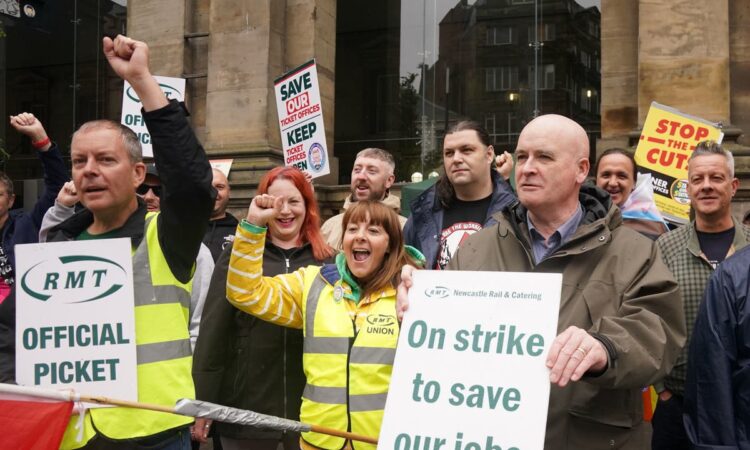
T
ravellers are facing travel misery at the end of the summer holidays as members of the biggest rail workers union stage fresh strikes in the long-running dispute over pay, jobs and conditions.
The Rail, Maritime and Transport union (RMT) said 20,000 of its members in 14 train operators would walk out on two consecutive Saturdays, including during the August bank holiday.
add a comment













